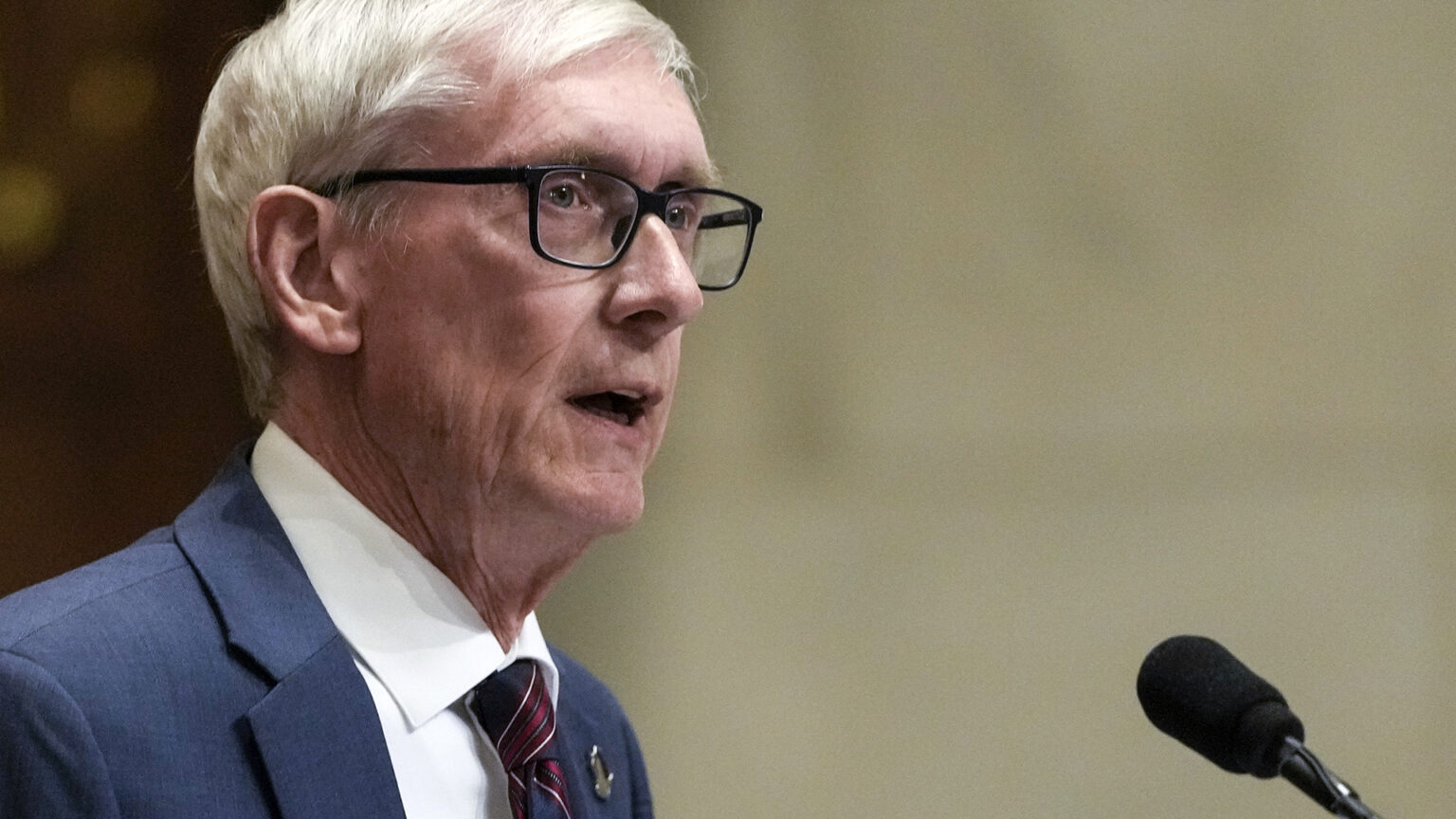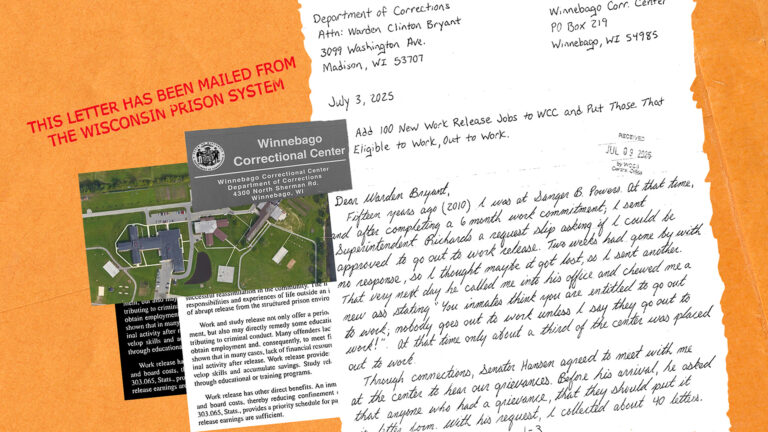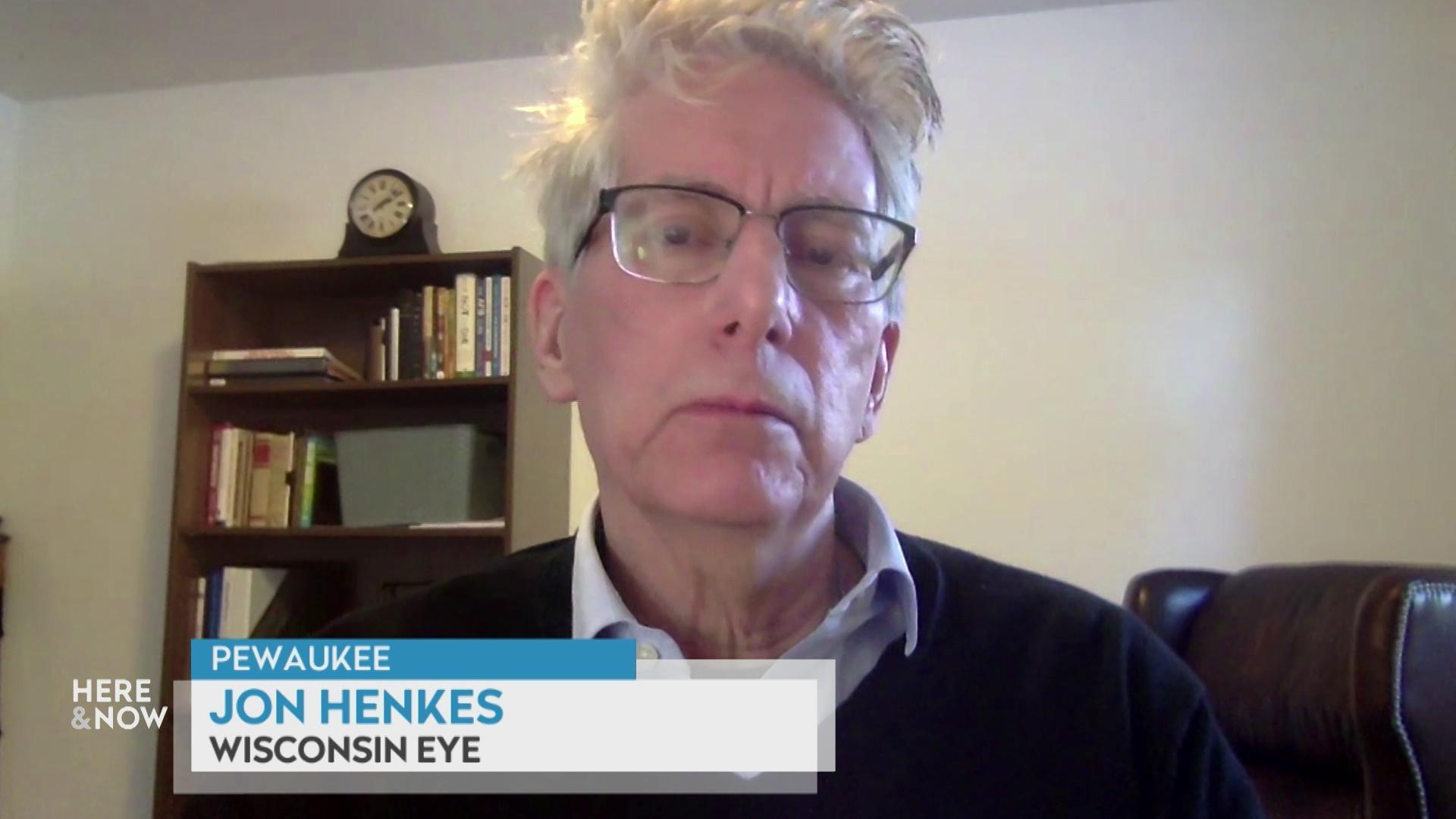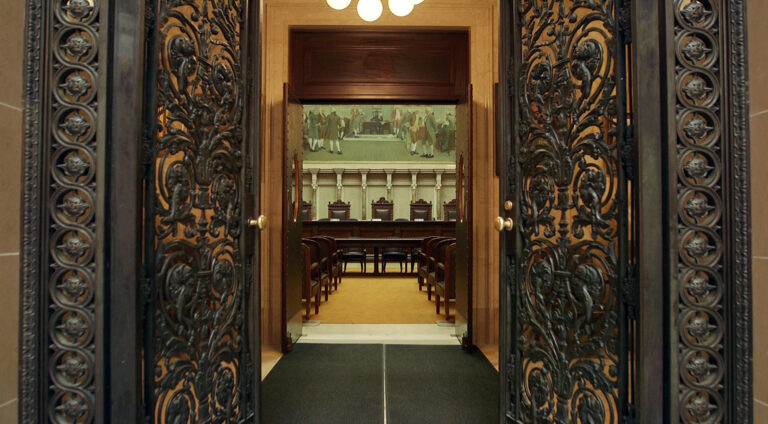Evers vetoes Republican election bills, signs AI disclaimer requirement for political ads
Democratic Wisconsin Gov. Tony Evers has vetoed Republican proposals that would have allowed election observers to get closer to poll workers and required a new post-election audit, and signed into law a bill requiring political TV ads using AI come with a disclaimer.
Associated Press
March 21, 2024

Gov. Tony Evers gives his annual State of the State address on Jan. 23, 2024, at the Wisconsin State Capitol in Madison. Evers on March 21 vetoed Republican proposals that would have allowed election observers to get closer to poll workers and required a new post-election audit (Credit: AP Photo / Morry Gash, File)

MADISON, Wis. (AP) — Wisconsin Gov. Tony Evers on March 21 vetoed Republican proposals that would have allowed election observers to get closer to poll workers and required a new post-election audit, while signing a bill increasing the penalty for assaulting an election official.
Evers, a Democrat, also signed into law a bill requiring that political TV ads using artificial intelligence come with a disclaimer and a bipartisan bill exempting purchases of precious metal, such as gold and silver, from the state sales tax. The exemption does not apply to jewelry and other personal property, including works of art and scrap metal. But it would exempt from the sales tax coins, bars, rounds or sheets containing at least 35% of gold, silver, copper, platinum, or palladium.
The AI bill also passed with bipartisan support. Backers said the disclaimer is needed for ads that use the rapidly evolving AI technology so viewers get help in determining the difference between fact and fiction.
Evers also signed a bill allowing for children to occasionally sell crafts and other non-food items in public places, such as a park, without having to get permits. Current law already allows children to operate lemonade stands on private property without fear of being shut down by the government for lack of permits. The new law expands where people under 18 can sell items in public spaces such as parks.
He signed a bipartisan bill that makes it a felony punishable by up to 18 months in prison for assaulting an election official. The measure, which comes in the wake of increasing threats against election workers, also prohibits the release of clerks’ personal phone numbers or addresses.
Evers also signed a bill that prohibits municipalities from closing more than half of polling places within 30 days before an election. That comes after many polling places were closed in 2020 at the height of the COVID-19 pandemic. In Milwaukee, only five of the city’s 182 polling sites were open in April 2020.
Evers vetoed four Republican election-related bills.
One would have required a post-election audit, which Evers said he vetoed because he objects to Republicans’ “ongoing efforts to interfere with and usurp control over election administration and undermine Wisconsin’s election administration system.” Existing post-election audits already ensure that the state’s elections are fair and run properly, Evers said.
Another vetoed bill would have allowed election observers to be within 3 feet of election workers. Current law bars them from being any closer than 3 feet from workers.
Republicans have pushed for years to give observers more power while watching people vote. But Evers, in his veto message, said allowing them to get closer would increase the risk of interference and voter intimidation.
The state election commission announced plans in the early evening of March 21 to draft administrative rules governing observers’ conduct. The commission did not say what the regulations would restrict. The rule-making process can take years in Wisconsin; any drafts could go through multiple changes during that time.
He vetoed two bills that would have tightened the rules for casting and collecting absentee ballots in nursing homes. Republicans introduced them after criticizing how voting was conducted in nursing homes during the height of the COVID-19 pandemic.
Evers also vetoed a bill that would have required a special election or Senate approval of his appointments when there is a vacancy for the positions of secretary of state, treasurer, attorney general and secretary of the Department of Public Instruction. Republicans pushed the measure after Evers named Sarah Godlewski as secretary of state after the elected office holder, Doug La Follette, resigned.
Evers said he objected to the Legislature trying to infringe on his powers of appointment. He said if enacted, the proposal could lead to long vacancies in the positions.
 Passport
Passport











Follow Us